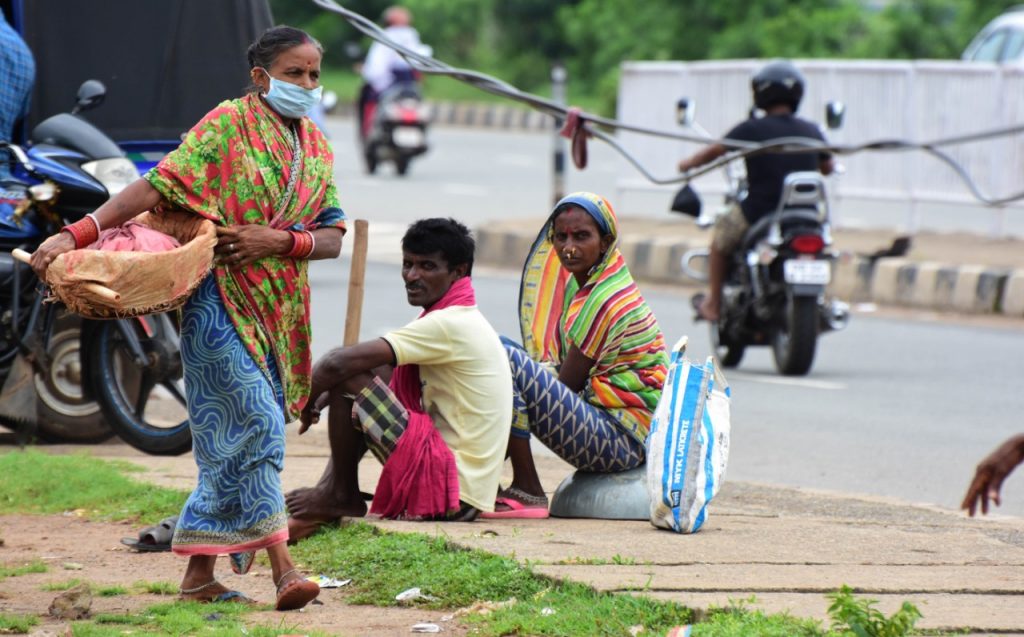Shivaji Sarkar
The Indian economy is on life-saving policies such as incentives, special packages and lending. Even the daily wage workers and small farmers are being considered to be brought under bank-funded credit schemes. RBI hints at severe inflation risk and the Index of Industrial Production (IIP) shrinks by 36 per cent in the first quarter, 16.6 per cent in June alone.
In May, World Bank had said that the economy was to contract by 3.2 per cent in 2020-21. Now it says the contraction would be steeper and fiscal deficit to rise to 6.6 per cent. Consumer durables, electronics, fashion and lifestyle are amid steep demand slump. Apparel vendors see about 30 per cent fall in orders. In some other items the demand crash by about 50 per cent.
The Modi government needs to take bold steps to open up the economy to the village weekly local market level. The economy has never been at such a nadir since World War II. The shutdown has crippled the economy. The export market is dull as destinations are either in lockdown or in abysmal economic situation with their own demands plummeting.
Though the government is working on various strategies, most plans are time-consuming. The nation is in need for immediate relief at the grassroots level. Depressing income of farmers, small businesses, white collar and tiny workers hits hard and if nothing else the government needs to find out a two-minute noodle solution.
The divestment in BPCL and the privatisation of Air India have been stalled due to the pandemic. The disinvest plans in 18 strategic sectors are being reworked. It seems the government is caught in a dilemma. On the one hand, we are banning imports of over 100 defence items to boost indigenised production and on the other the sickness of the Steel Authority of India and various other public sector units is causing concern. And then banning Chinese apps is a good move but indigenous manufacturing is yet to pick up.
Concern is being expressed over the apathy to revive Indian Railways and instead steam ahead with “privatisation” of prime trains, which in all likelihood shall add to its woes. The higher recovery rate in Covid-19, in some areas up to 90 per cent or more, calls for resumption of public transport, railways, metro, tourism and hotel industry employing about 10 crore people. Similarly, normal air traffic too needs to be restored. Local passenger air traffic in July fell by 82.3 per cent in the year, which is neither good for airlines nor the people and strained finances can risk safety of aircraft as well!
The fear of the pandemic should not lead to creating a non-productive nation. The government has a bit of anxiety but it would have people’s support if normality is actively considered and restored. According to filings of 40 leading BSE 100 companies’ results till June 2020, every sector is under severe stress. It has hit aviation to automobiles, capital goods, consumer items including alcoholic beverages. The deepest impact is seen on non-essential manufacturing and services. Even the education sector is hit. Many have reduced aggregate employee expenditures – United Spirits 12.7 per cent; Bajaj Finserv 14.8 per cent; Suzuki India 15 per cent; HDFC Life 21 per cent; Tata Motors 26 per cent; Havells India 27 per cent and Mahindra 36.7 per cent.
In urban India, hi-tech firms of Bangalore have sacked, reduced wages or not paid salaries for the past many months. The rural sector is equally hit. Despite direct benefit transfers, cash is in short supply and rural workers are without jobs. Distressed people are hit by rising retail inflation, which shot to 6 per cent in April and almost 7 (6.93) per cent in July against 3.15 per cent last year. The CPI data in June was 6.23 per cent due to rising food, personal care and transportation costs owing to high fuel prices.
The National Statistical Office notes 9.62 per cent inflation in vegetables, pulses, spices, meat, fish, fruits and other food items. In June, the food inflation was 8.72 per cent. Higher inflation is due to supply side disruptions. It is abetted by higher transportation costs. Disruptions in economic activities and localised lockdown have affected free movement of goods.
Modi must intervene to correct this anomaly. If people pay high taxes, they are forced to compromise on their demands. Modi has done well in ensuring transparent tax environment. Exempting interest accrual from I-T would go a long way in fast revival of the economy as well as the banking sector.
INFA
